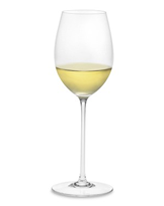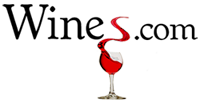Sauvignon Blanc
Sauvignon Blanc is a beautiful wine that is often misunderstood. It's the "chameleon" of white wines because the same grape variety, grown in different parts of the world, has a totally different taste.
It is also sometimes labelled Fumé Blanc (see our video) and, in France, is known by the wine regions where it is produced—Appellation d'origine contrôlée (AOC)—especially Sancerre and Pouilly-Fumé in the Loire Valley. Bordeaux Blanc or White Bordeaux is composed mostly of Sauvignon Blanc and Semillon grapes. Bordeaux Blanc often goes by the name Graves, Pessac-Lognan, or Entre-Deux-Mers, and occupies a small yet longstanding space in Bordeaux's repertoire, comprising about 15% of the annual Bordeaux harvest.
The Sauvignon Blanc Grape
Sauvignon Blanc is a green-skinned grape variety which originates from the Bordeaux region of France. The grape gets its name from the French word sauvage ("wild") and blanc ("white") due to its early origins as an indigenous grape in South West France.
Today Sauvignon Blanc is successfully cultivated around the world, with the best Sauvignon Blanc coming from the Loire Region in France (Sancerre, Pouilly-Fumé), New Zealand and Australia. Very good Sauvignon Blanc is also produced in Chile and in the U.S., especially in Washington state, Oregon and California's Sonoma County and Napa County.

Tasting Sauvignon Blanc
Depending on the climate, the flavor can range from aggressively grassy to sweetly tropical.
New Zealand has become the leader in producing a style of Sauvignon Blanc that is pungent and intense in flavor. New Zealand and Australian Sauvignon Blanc is usually cold-fermented in stainless steel to retain its "zing", though recently more examples are being produced to add complexity using oak, wild yeasts & lees stirring. Traditional New Zealand Sauvignon Blanc is famed for its pungently aromatic green capsicum (bell pepper), gooseberry and lush passionfruit characters.
Sauvignon Blanc wines produced in France's Loire Valley are also world famous. Like nearly all French wine labels, the grape varietal name is not mentioned on the label. Instead, the region of origin is promoted. Sancerre and Pouilly-Fumé are usually nearly 100% Sauvignon Blanc. They produce crisp, steely, minerally refreshing wines that are, however, less assertive than their New Zealand counterparts.
California, Oregon and Washington Sauvignon Blanc wines typically have a herbaceous, grassy quality, while Chilean Sauvignon Blanc displays high acid and delicious, citrusy flavors.
Food Pairings
Sauvignon Blanc, when slightly chilled, pairs well with fish, shellfish, nearly any seafood or savory cheese, particularly Chevre. It is also known as one of the few wines that can pair well with sushi. Sauvignon Blanc's crisp acidity is delicious paired with crunchy summer salads of cherry tomatoes, peppers and vinaigrette. Serve chilled.
Video
In this 3-minute video Rob Moshein, Austin Wine Guy, gives a comprehensive overview of Sauvignon Blanc and its characteristics as produced in New Zealand, the Loire Valley of France (Sancerre and Pouilly-Fumé), the U.S. West Coast and Chile.
